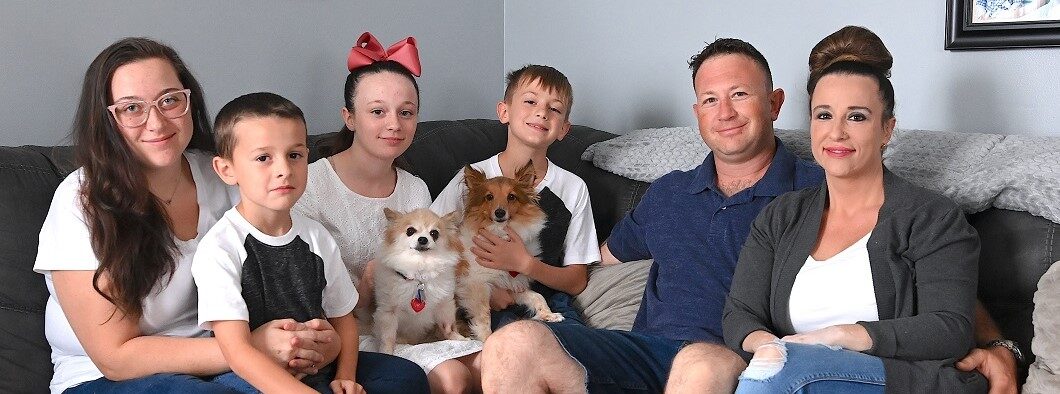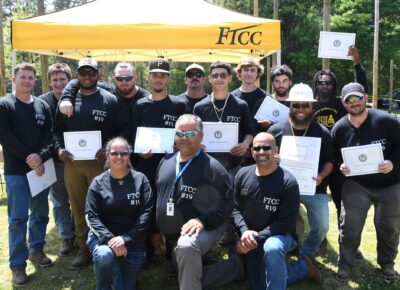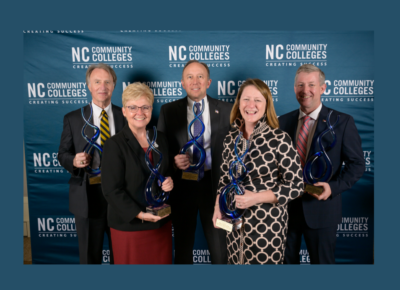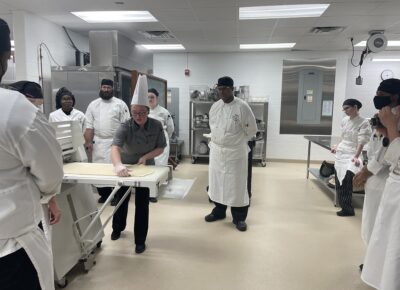By Alicia Banks
A reading comprehension disorder might have blocked Phillip Putman from moving forward in life.
But hard work and support from family, colleagues and educators helped Putman achieve his goals of military service and a college degree.
He was in first grade when a teacher alerted Putman’s mother to his struggle with reading.
“I would read something but I couldn’t understand it,” said Putman, now 39. “It would take me two or three times reading it to understand.”
Reading remained difficult for Putman through the years and threatened to dampen his dream of serving in the military the way his grandfather, father and uncle had.
After high school, a huge hurdle blocked his path – the Armed Services Vocational Aptitude Battery (ASVAB) test. The multiple-choice test is used to determine a person’s qualifications for enlistment in the military. It has numerous sections and each section must be completed within a set amount of time.
Putman took the ASVAB several times, but kept falling short.
“When 9/11 hit, I worked harder to try and pass the ASVAB because it’s one of the things people told me I could never do,” he said. “It’s always one of the things I’ve wanted to do, being able to support your country and being able to defend it.”
Then he met his future wife, now Lydia Putman.
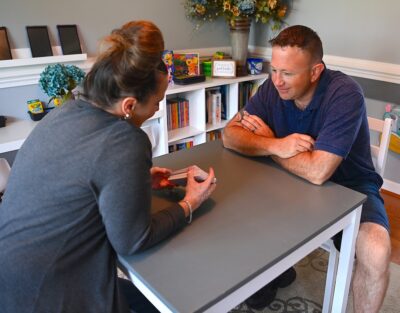
Lydia and Phillip Putman
Lydia read study books with Putman, quizzed him with homemade flash cards, recorded his conversations during study times, then played his words back to him while he slept. In 2006, after five months of these intensive studies, Putman passed the ASVAB and was able to enlist in the Army. He remains in the service today, a staff sergeant with the 82nd Airborne Division on Fort Bragg, and will mark his 15th year of military service in November.
Considering college
Putman has been promoted several times over the years and wants to continue to move up in rank. But when another soldier said he’d improve his chances of promotion if he earned a college degree, the idea seemed ludicrous. The ASVAB had been a 3-hour test. College was an entirely different level of challenge.
But Master Sgt. Justin Hummer, who met Putman in a warrior transition battalion for soldiers rehabilitating from injuries, pushed Putman to enroll at Fayetteville Technical Community College.
“I had a very candid conversation with him, and I believed he could do it through FTCC,” said Hummer, who himself earned an associate degree from FTCC and a bachelor’s degree from Excelsior College. “I want all my soldiers to be successful. That’s what drives me as a leader, to see them succeed on their own merit.”
Hummer told Putman that as long as he was in the Army’s return-to-work program, he’d have to take college classes.
Putman wasn’t sure. “I never expected to go to college, and I had been out of high school for almost 20 years,” he said. “I never really had the drive.”
But he came to appreciate Hummer’s insistence. “He was setting me up for success,” Putman said.
Putman enrolled at FTCC in fall 2019.
When Lydia could, she helped him study. 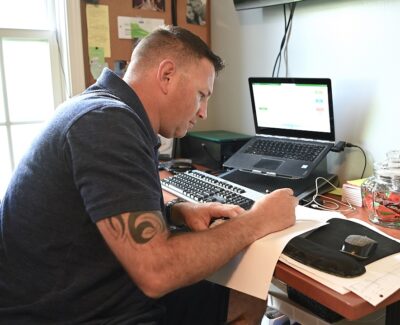 So did the couple’s four children: Kayden, 7; Xavier, 11; Ellie, 13 and Zoey, 22. Zoey, a student at Daytona State College in Florida, would quiz her dad. And whenever Putman studied in the office in the family’s home in Sanford, it was “quiet time” throughout the house.
So did the couple’s four children: Kayden, 7; Xavier, 11; Ellie, 13 and Zoey, 22. Zoey, a student at Daytona State College in Florida, would quiz her dad. And whenever Putman studied in the office in the family’s home in Sanford, it was “quiet time” throughout the house.
The pandemic kept Putman mostly at home, allowing him to take online classes to finish his degree.
“The key to his success was he was provided direction, motivation, mentorship and someone who believed in him,” Hummer said. “I was one of those people, but a lot of the credit goes to his wife and kids. They gave him purpose. They were his true motivation. That’s what really drove him.”
FTCC faculty and staff also supported Putman. He had told his teachers about his reading disorder. They worked with him to make sure he grasped course material so he wouldn’t fall behind. Staff in the Student Learning Center provided tutoring in subjects when he needed extra help. Christopher Cheek, a military/veteran services specialist in FTCC’s Military Programs, helped Putman register for the right classes. Cheek changed his approach with Putman after recognizing his disorder.
“I made sure to make him recap what we discussed to help with his comprehension, and offered him pen and paper to write it down,” Cheek said. “Society had already marginalized him, and told him he wouldn’t make it. Look at him now, doing more than what was expected.”
‘Don’t be afraid’
In July of this year, Putman graduated from FTCC with an associate degree in general education and a 4.0 GPA. He earned highest honors. Meanwhile, he completed the Army’s Senior Leaders Course in May and is now eligible for promotion to Sergeant First Class. He hopes to achieve the new rank by the end of the year.
“It hasn’t hit me yet,” Putman said of his achievements.
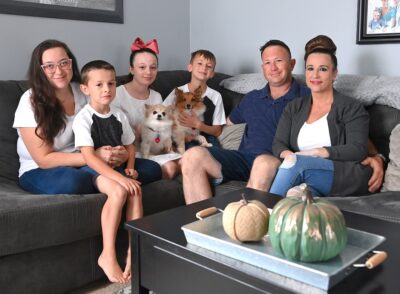
The Putman family
Lydia Putman said she appreciates the support that her husband received from everyone – his children, his colleagues and FTCC’s faculty and staff.
“That kind of interaction is what fuels people like him because he sees that they are interested,” she said. “Going to school like this at his age? It was a family endeavor, everyone has to chip in.”
Cheek said he hopes Putman’s story will encourage students of all ages to seek assistance when they need it instead of trying to mask their struggles.
Putman agrees. He said he wouldn’t have received the help he needed at FTCC or through the Army if he didn’t talk about his learning comprehension disorder.
“Don’t be afraid to ask questions because if you don’t, how are you going to know?” he said. “Don’t let anyone say you can’t do something. Don’t put yourself down because you have a learning [disorder]. Strive to overcome it, and you’ll always be successful.”

